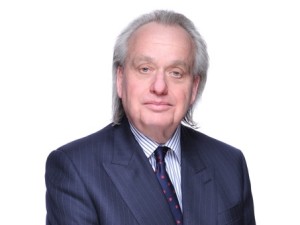
Find Barrister by Expertise:
- View All
- Personal Injury
- Travel & International Law
- Civil Fraud
- Employment
- Crime
- Health & Safety
- Clinical Negligence
- Regulatory & Disciplinary
- Criminal Fraud
- Inquests
- General Common Law
- Industrial Disease
- Insurance
- Sports Law
- Credit Hire
- Professional Negligence
- Public Inquiries
- Public Law
- Trusts & Probate
- Costs
- Mediation & Arbitration
- Commercial
- Public Access
- Education
Geoffrey Williams QC successfully acts for the SRA as Dishonesty Appeal is dismissed
Published: 20/02/2015 | News

Ranbir Singh Bains v Solicitors Regulation Authority
QBD (Holman J) 18/02/2015
The Solicitors Disciplinary Tribunal had been entitled to find that a solicitor had dishonestly utilised client monies for the purposes of other clients in breach of the Solicitors Accounts Rules 1998 r.30.
The appellant solicitor appealed against a finding of dishonesty by the Solicitors Disciplinary Tribunal.
The appellant was in his mid-fifties and had had many years’ unblemished service as a solicitor and had been in practice with a partner. The charges related to a transaction in the appellant’s client account which were in breach of the Solicitors Accounts Rules 1998. Charge 1.1 was that the appellant had withdrawn monies from the client account in respect of four clients that exceeded the funds held for those clients, in breach of r.22(5), giving rise to a shortage. Charge 1.2 was that the appellant improperly utilised client monies for the purposes of other clients in breach of r.30. The appellant and his long-standing bookkeeper were interviewed by a forensic investigator (T). T also removed a considerable number of documents and accounting records. The SRA intervened into the appellant’s practice. The appellant admitted the underlying facts of the allegations. The appellant adduced evidence showing that his partner had become ill and had died rapidly and that he had ended up acting as a sole practitioner, that his mother was seriously ill and had died, that the appellant had been treated for depression and had had some physical problems. The essential question was whether the appellant’s conduct in breaching the Rules was dishonest or grossly reckless. The tribunal was not satisfied that the appellant had been dishonest in relation to charge 1.1 but that he had been reckless. In relation to charge 1.2 the tribunal concluded that the appellant had acted dishonestly. He was struck off the solicitors’ roll. The appellant appealed against the finding of dishonesty in relation to charge 1.2. T had given evidence that certain transfer slips did not exist in relation to the transfers relevant to charge 1.2. The appellant subsequently found those slips amongst the documents the SRA had removed under T’s investigation.
The appellant submitted that (1) the tribunal had not sufficiently taken his medical and physical history into account; (2) T did not have any formal qualifications as an accountant or a solicitor; (3) in answer to questions by the tribunal about the existence of transfer slips relevant to charge 1.2, T had given inaccurate or untruthful evidence and he had not been given the opportunity to ask T more questions; He argued that there was no material difference between the substance of the charges in 1.1 and 1.2 and that if T had not told the tribunal that there were no transfer slips, but the tribunal had been shown the slips he had found subsequently, it would not have made a finding of dishonesty.
HELD: (1) The tribunal had had the appellant’s medical evidence well in mind as well as his personal and professional pressures and was satisfied that the appellant was not disadvantaged in conducting his own case by his ill health. The tribunal had addressed separately the question of whether the appellant’s mental health was such that he did not know that what he was doing was wrong. However, the impairment was not such that he could not recognise that his behaviour was dishonest. The undisputed history of the appellant’s ill-health could not impact on the ultimate finding and conclusion of dishonesty.
(2) The appellant’s concerns about T were well-known to the tribunal. T had had over ten years’ experience and had carried out about 300 investigations. The tribunal did not consider that the investigation was deficient by her lack of qualifications.
(3) It was regrettable that the tribunal’s chair had not specifically addressed the appellant to make it clear that he had an opportunity to ask further questions arising from the tribunal’s questioning of T and the answers that she gave. However, the appellant’s complaints that there was unfairness and irregularity was not accepted. He was intelligent and had conducted his case with skill and a grasp of the relevant facts. The tribunal had taken care to look at the disadvantages that the appellant had in acting in person or being slightly unfit. The apparent absence of the transfer slips had not impacted on the tribunal’s reasons. If T had found the transfer slips that would have certified the case on dishonesty. If produced at the hearing they would have evidenced that the appellant had authorised those transfers when he should not have done so. T’s evidence and the finding of the slips could not undermine or expose as wrong the tribunal’s conclusion on dishonesty; the decision had been in no way wrong or unfair.
The appeal was dismissed.
Author: Geoffrey Williams 2003 Farrars (gwilliams@farrarsbuilding.co.uk)